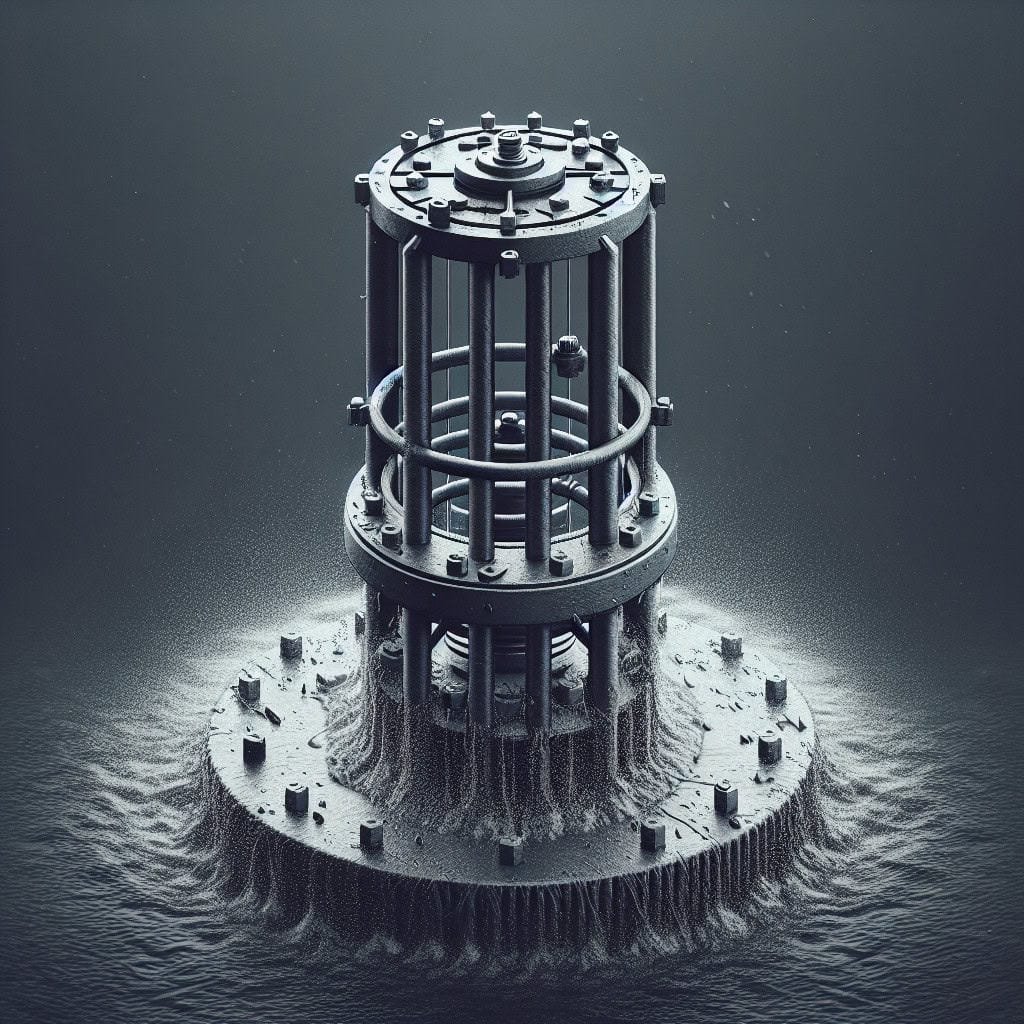During periods of heavy rain, flooding, and storms, it is important to ensure the safety of your well water. With the potential for contamination and damage, taking proactive measures is crucial. In this article, we will explore some practical tips and essential precautions to help you maintain the safety of your well water during these challenging weather conditions. By following these guidelines, you can safeguard your water supply and enjoy peace of mind even when the weather is less than cooperative.

Evaluate the Well Condition
Inspecting the Well Structure
To maintain well water safety during heavy rain, flooding, and storms, it is essential to regularly inspect the well structure. Start by visually examining the well casing for any signs of damage, such as cracks or holes. Additionally, ensure that the well cap is securely in place and intact. This will prevent surface water from contaminating the well. If any issues are identified, it is advisable to contact a licensed well contractor for professional assistance.
Checking for Overflows and Leaks
Another crucial aspect of maintaining well water safety is to check for overflows and leaks. After heavy rain or flooding, it is important to assess the area surrounding the well for any signs of excessive water accumulation. If the groundwater level has risen to the point of overflowing the well, it may indicate potential contamination risks. Additionally, inspect the wellhead and pipes for any leaks or damaged components. Promptly address any identified issues to prevent further contamination or damage.
Assessing the Wellhead’s Protection
The protection of the wellhead is vital in ensuring the safety of well water during heavy rain, flooding, and storms. The wellhead should be adequately sealed and protected to prevent surface water infiltration. Make sure that the well cap is tightly fitted, without any cracks or gaps. Additionally, consider installing a protective wellhead cover to shield the well from potential debris and contaminants during extreme weather events. By assessing and enhancing the wellhead’s protection, the risk of water contamination can be significantly reduced.
Minimize Contamination Risks
Divert External Water Sources
During heavy rain, flooding, and storms, it is crucial to divert external water sources away from the well to minimize contamination risks. Ensure that your landscaping and drainage systems are designed to direct water flow away from the well area. Regularly inspect and clean any gutters, downspouts, or drains to prevent clogging that could cause surface water to pool near the well. By effectively diverting water away from the well, you can reduce the likelihood of contaminants entering the water source.
Prevent Surface Runoff
Surface runoff can pose a significant risk to well water safety. To minimize this risk, take measures to prevent surface runoff from flowing towards the well. Proper grading and sloping of the land around the well can help direct water away, preventing it from pooling near the wellhead. Installing rain gutters and downspouts will also help divert rainwater away from the immediate vicinity of the well. By proactively addressing surface runoff, you can protect the quality and safety of your well water.
Maintain Well Caps and Seals
Well caps and seals play a vital role in preventing contamination of the well water. Regularly inspect the well cap to ensure it is in good condition and securely fastened. If any cracks, gaps, or signs of deterioration are detected, promptly replace or repair the well cap. Similarly, regularly assess the seals around the well casing and any entry points for pipes or electrical wiring. Well seals should create a tight barrier, preventing the intrusion of surface water and potential contaminants.
Keep the Area around the Well Clean
A clean well area is essential for maintaining water safety during heavy rain, flooding, and storms. Keep the vicinity around the well free from debris, leaves, and other potential sources of contamination. Regularly remove any vegetation or organic matter near the well that could trap water and create a breeding ground for bacteria or other contaminants. By keeping the area around the well clean, you contribute to safeguarding the quality of your well water.
Monitor Water Quality Regularly
Performing Periodic Water Testing
Regular water testing is crucial for maintaining the safety of well water, particularly during heavy rain, flooding, and storms. Establish a schedule for periodic water testing or consult with a local health or environmental agency for guidance on testing frequency. Test for a wide range of parameters, including bacteria, nitrates, pH levels, and any other contaminants of concern in your area. By monitoring and promptly addressing any water quality issues, you can ensure the ongoing safety of your well water.
Monitoring for Changes in Color, Odor, or Taste
In addition to regular water testing, it is important to monitor your well water for any changes in color, odor, or taste. If you notice any unusual or unpleasant characteristics, it may indicate a potential problem with the water quality. Discoloration, a foul smell, or an unusual taste could be signs of contamination or other issues. If these changes are observed, it is advisable to get your water tested and seek professional assistance if necessary. Prompt action will help maintain the safety and integrity of your well water.
Manage Electrical Hazards
Ensure Proper Grounding of Electrical Systems
Proper grounding of electrical systems is essential to prevent electrical hazards from impacting the safety of your well water. During heavy rain, flooding, and storms, electrical systems can be at a higher risk of malfunctions or damage. Ensure that your well’s electrical components, such as pumps, are correctly grounded. This will help prevent electric shocks or other hazards that could affect the safety of your well water. If you are uncertain about the grounding of your well’s electrical systems, consult a licensed electrician for guidance.
Use Ground Fault Circuit Interrupters (GFCIs)
To further enhance electrical safety for your well water, consider installing ground fault circuit interrupters (GFCIs). GFCIs are electrical devices that provide protection against electric shocks. They detect imbalances in electrical currents and quickly shut off the power supply to prevent electrical accidents. Install GFCIs at appropriate locations, such as outlets or electrical panels, to ensure the highest level of safety. By utilizing GFCIs, you can mitigate the risks associated with electrical hazards during heavy rain, flooding, and storms.
Secure Electrical Components and Wiring
During extreme weather events, it is important to secure the electrical components and wiring associated with your well. Ensure that electrical connections are properly insulated and protected from moisture. Consider using waterproof junction boxes or enclosures to shield electrical components from the elements. Inspect wiring regularly, looking for any signs of wear or damage. By securing your well’s electrical components and wiring, you reduce the chance of electrical faults that could compromise the well water safety.

Safe Water Usage and Conservation
Boil or Disinfect Water when Necessary
In situations where the safety of your well water is in doubt due to heavy rain, flooding, or storms, it is important to take extra precautions when using the water. Boiling the water for at least one minute can help kill most types of pathogens. Alternatively, you can disinfect the water using appropriate disinfectants or water purification methods. It is advisable to follow specific guidelines provided by local health authorities or consult with a water treatment professional to ensure the effectiveness and safety of the disinfection process.
Practice Water Conservation to Prevent Overuse
During heavy rain, flooding, and storms, it is prudent to practice water conservation to prevent overuse of your well water. Excessive pumping or usage of water during these periods can strain the well system and potentially compromise water safety. Use water sparingly and avoid unnecessary water consumption. Implement water-saving practices, such as fixing leaks promptly and utilizing water-efficient appliances. By conserving water, you can help maintain the functionality and safety of your well system even during challenging weather conditions.
Prepare for Emergency Situations
Establish an Emergency Water Supply
Preparing for emergency situations is crucial to ensuring the availability of safe drinking water during heavy rain, flooding, and storms. Establish an emergency water supply to rely on when your well water may be temporarily compromised. Store an adequate amount of bottled water or consider installing a backup water storage system. Follow recommended guidelines for storage duration and regularly rotate your emergency water supply to ensure its freshness. By having an emergency water supply ready, you can sustain your daily water needs even in challenging circumstances.
Learn Basic Well Maintenance and Troubleshooting
Empower yourself with knowledge of basic well maintenance and troubleshooting techniques to better handle emergency situations. Familiarize yourself with the components of your well system, such as the well pump and pressure tank, and understand their basic functionalities. Learn how to identify common signs of well problems, such as reduced water flow or unusual noises. By acquiring these skills, you can take immediate action and potentially resolve minor issues to restore the safety and functionality of your well system.
Know the Location of Shut-Off Valves and Equipment
In the event of an emergency or unexpected well system failure, knowing the location of shut-off valves and equipment is crucial. Locate the main shut-off valve for your well and ensure it is easily accessible. Familiarize yourself with any additional shut-off valves, such as those for specific areas of your well system. This knowledge will enable you to quickly isolate and address any issues, minimizing potential risks to your well water safety. Regularly inspect and test the shut-off valves to ensure proper functioning.

Maintain Surface Drainage
Ensure Proper Grading and Sloping
Maintaining proper surface drainage is essential to prevent excess water from pooling around your well during heavy rain, flooding, and storms. Ensure that the land around the well is properly graded and sloped to direct water away efficiently. If needed, consider consulting a professional to evaluate and optimize the grading around your well. By managing surface drainage effectively, you can reduce the risk of water seepage towards the well, thereby safeguarding the quality of your well water.
Install Rain Gutters and Downspouts
Installing rain gutters and downspouts is a preventive measure that helps manage surface water runoff and protect your well during heavy rain, flooding, and storms. Properly installed gutters will collect rainwater from your roof and channel it away from the foundation of your home and the well area. Ensure that the gutters are free from debris and regularly clean them to maintain proper functionality. Direct the downspouts away from the well, allowing the water to flow at least several feet away from the wellhead.
Redirect Stormwater Away from the Well
In addition to rain gutters and downspouts, consider redirecting stormwater away from the well to maximize its protection during heavy rain, flooding, and storms. If your well is located within close proximity to paved surfaces or areas prone to stormwater accumulation, take measures to redirect the water flow away from the well area. Excavate trenches or install drain pipes to create alternative pathways for stormwater away from the immediate vicinity of the well. By effectively managing stormwater, you reduce the risk of contamination and ensure the safety of your well water.
Protect the Well During Construction
Monitor Nearby Construction Activities
When construction activities are taking place near your well, it is important to monitor them closely to protect the safety of your well water. Construction sites can introduce various contaminants into the surrounding environment, potentially impacting the quality of the well water. Stay vigilant and communicate with the contractors to ensure they follow best practices for erosion control, sediment containment, and preventing the discharge of harmful substances into drainage systems. Regularly inspect your well water following nearby construction activities to ensure its ongoing safety.
Prevent Debris and Sediment from Entering the Well
Preventing debris and sediment from entering your well is crucial, especially during heavy rain, flooding, and storms when the risk is heightened. Implement barrier measures to keep unwanted materials away from the well. Install protective well caps and screens that prevent large debris from falling into the well. Regularly clean and maintain these barriers to ensure they are free from sediment, leaves, or other potential contaminants. By effectively preventing the entry of debris and sediment, you can maintain the integrity and safety of your well water.
Educate and Inform
Share Well Safety Guidelines with Family Members
Educating and informing your family members about well safety guidelines is paramount to ensuring the ongoing protection of your well water. Clearly communicate the importance of adhering to proper practices, such as avoiding the disposal of hazardous materials near the well and regularly monitoring water quality. Teach them how to recognize signs of potential issues and the necessary steps to take in case of emergencies. By sharing this knowledge, you empower your loved ones to actively contribute to maintaining the safety of your well water.
Inform Neighbors and Community Members about Well Maintenance
It is equally important to extend your knowledge and expertise to neighbors and community members to promote collective well water safety. Share information regarding well maintenance and safety practices, encouraging others to adopt responsible behaviors. Inform them about potential contamination risks during heavy rain, flooding, and storms, and the importance of regular water testing. By raising awareness within your community, you contribute to the overall well-being and safety of all individuals reliant on well water.
Seek Professional Assistance
Consult a Licensed Well Contractor
When it comes to well water safety, seeking professional assistance is often the most reliable approach. Consult a licensed well contractor to assess the condition of your well and provide expert advice on maintenance and safety measures. They can conduct thorough inspections, identify potential issues, and recommend appropriate solutions. Regular professional maintenance will ensure the longevity and safety of your well system, giving you peace of mind during heavy rain, flooding, and storms.
Reach Out to Local Health or Environmental Agencies
Local health or environmental agencies can serve as valuable resources for maintaining well water safety. Reach out to these agencies to inquire about specific guidelines and regulations related to well maintenance and water quality testing in your area. They can provide you with up-to-date information on potential contamination risks during heavy rain, flooding, and storms. Collaborating with local authorities will help you stay informed and take the necessary steps to safeguard your well water.
By following these comprehensive guidelines and proactively addressing each aspect of maintaining well water safety during heavy rain, flooding, and storms, you can ensure the ongoing quality and reliability of your well water supply. Prioritizing regular inspections, monitoring water quality, and implementing preventive measures will help protect your well and safeguard the health of you and your family. Remember, when in doubt, always seek professional assistance to maintain the highest standards of well water safety.

